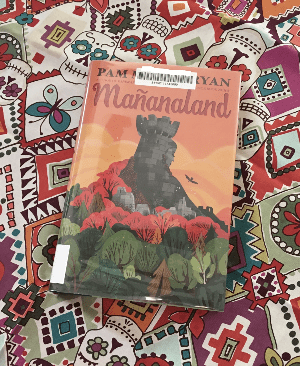
Mañanaland was a relatively gentle treatment of a very difficult subject, immigrants fleeing from one country to another and a mother who felt compelled, for the sake of her child, to give him up to people she knew would take good care of him (his father).
Maximilliano grows up never questioning he's from Santa Maria, until his soccer team's new coach requires his birth certificate to sign up.
From that point forward, when his Papa can't produce the document, Max looks at the people who love him in a very different light, especially his father and grandfather. Very quickly, the legends about a secret network of people who guide refugees through the city to safety takes on new meaning. And Max suspects they're real, and his father and grandfather are part of the network, disguising their work with their bridge building.
Then the local priest knocks on the door when his grandfather and Papa are out, asking for help getting a young woman to her next destination. It's true! There is a secret network that smuggles refugees through the country. Max agrees to help her, but he doesn't mention he doesn't know the way -- only the path vaguely laid out in his grandfather's stories.
He follows the story clues, leading her as best he can, because he suspects it's the same path his mother took, so many years ago, when she left him with his father. And he wants nothing more than to find his mother and be reunited with her.
But the path is perilous and they are hunted, almost from the start. With help, he gets the girl to her next destination, but he learns he may never find his mother.
I won't ruin how it ends, on a hopeful note, actually. Pull up a box of tissues; it's a heart-breaking read.
Mañanaland, by Pam Muñoz Ryan
